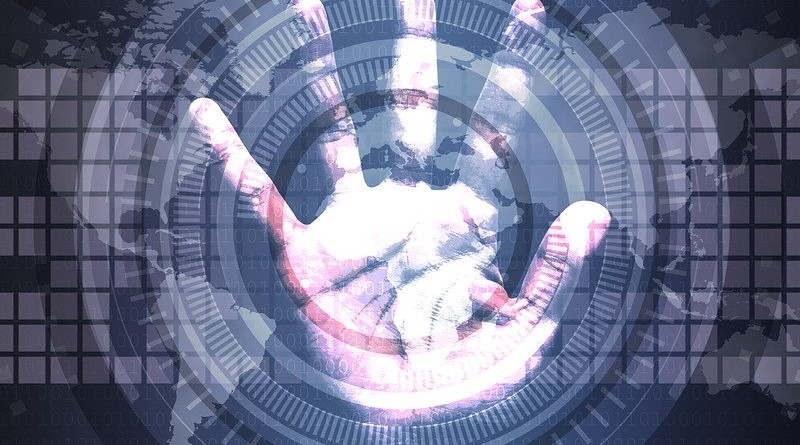Digital Security Act: Between Devil And The Deep Blue Sea – OpEd
Perhaps, the Digital Security Act-2018 (DSA) is the most discussed law in the past few years. The narrative regarding it is also perhaps the most dichotomous. While the dissidents and anti-establishment activists coin it as a draconian law, the ruling party activists try to defend it. It seems the outlook regarding the law is now between the devil and the deep blue sea.
The latest Prothom Alo incident and fragmented response from the journalist society at the national level have further ignited the debate. But between two fires, amending is the best way.
From ICT Act to DSA
As Information and Communication Technologies spread rapidly, the government introduced ICT Act 2006. But the law had several weaknesses. Only 426 cases were filed between 2006-2013. In 2013, the law was amended and the result was visible. In 2017, 568 cases were filed under the ICT act; and in 2018, the number increased to 676. However, the law still had limitations, as hardly any cases were solved.
To address the limitations of the ICT Act and address emerging security threats, the government introduced DSA in 2018. Such laws to ensure security in cyberspace is common around the world. Take, for instance, India’s ICT Act 2000. During the formulation process, the government engaged stakeholders such as civil societies and prominent journalists in developing the draft bill.
However, upon enactment, the law became a tool for many misuses that one can’t deny. Arbitrary arrest, vague FIR, dilly-dally investigation, non-bail and same-old delay in prosecution produced many controversial events at the national level. Soon, the law became known as draconian law.
But the ‘image’ of misuse is also inflated. The Center for Governance Studies (CGS) published a report on DSA cases that presented a grim picture of the use of the law. But the data also shows something interesting. According to CGS, 3000 people faced lawsuits since 2018 under DSA. Among them, 280 are journalists (9.25%) and 287 are politicians. The rest 2400 are of various backgrounds. Another CGS report also shows that 115 cases were filed on religious sentiment while 44 cases were filed for financial fraudulence and 74 cases were filed on harassment.
It seems the number of journalists suggests that the wholesale narrative of repressive use may not be as strong as depicted. Moreover, the law is important to safeguard issues related to religious sentiment, tackle financial fraudulence and strictly curb cyber harassment, especially for women.
Does the law take aim at journalists?
Not necessarily, the law was formed to curb the free speech of contrarians or target journalists. The stakeholders- including civil society and journalist’s involvement suggest that there was a necessity of the law.
However, the initial ambiguities in details, the lack of proper technical knowledge among enforcers regarding the law, and the old culture of dilly-dally investigation created scope for misuse.
Moreover, in the era of post-truth politics, due to a wide range of fabrication done intentionally or unintentionally, rampant propaganda, and misinformation campaign, journalistic work has become more complicated. Copyright laws and press laws also require journalists to maintain rigorous methods and procedures. A slight lack of standard methods often turns a good story into false news. Unfortunately, in Bangladesh, journalists at both local and national levels quite often fail to maintain such standards. Take, for instance, the Prothom Alo incident. Even if we consider the DSA case against the newspaper as a draconian act, Prothom Alo surely violated the copyright and press law related to captioning. It failed to clearly state what their picture is stating, leaving room for ambiguity. Many Bangladeshi media often infringe copyright laws by failing to source properly. There is an indifference to maintaining best practices. As a result, Journalists often face lawsuits for defaming or falsehood.
Like journalists, politicians also walk on thin ice. Their aggressive rhetoric often ends up hurting sentiments or harassing individuals or groups.
But there is no denying that loopholes in laws are often used worldwide to suppress dissident voices. Yet, controlling freedom of expression is not the primary target here; instead, the loopholes and inefficient enforcement are the reasons behind the harassment of journalists and political leaders.
An amendment, not repeal is needed
DSA is important for safeguarding emerging security threats in cyberspace. It is primarily aimed at preventing the spread of extremism, terrorist propaganda, hatred against religious or ethnic minorities, financial fraudulence, and harassment through social media, print media, or any other electronic media. Almost all houses with digital footprints face fraudulence, or harassment in some part of their life in cyberspace. So, repealing DSA means there is no law for them to resort to. It will only deprive the victims of legal support.
Mainly, the loopholes and poor enforcement, and a few irrational features such as non-bail are the reason behind the misuse that needs amendment. The global view on the current state of DSA also calls for amendment rather than abolishment. UN Rights Chief Volker Turk also called Bangladesh to amend the law during the 52nd Human Rights Council Session. The Rights Chief has also sent a technical note to the law ministry regarding the law. The government should also consider the amendment to safeguard dissident voices. Therefore, an amendment should be the middle ground among the activists and the government, considering the necessity of the law.
Shafiqul Elahi is a retired Government Official of Bangladesh

